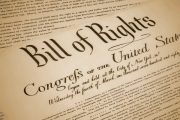
The U.S. Supreme Court ruled on Tuesday that Maine’s practice of forbidding parents from choosing religious schooling for their children when paid for with public funds is unconstitutional. Wrote Chief Justice John Roberts for the majority:
Maine’s “nonsectarian” requirement for its otherwise generally available tuition assistance payments violates the Free Exercise Clause of the First Amendment.
Regardless of how the benefit and restriction are described, the program operates to identify and exclude otherwise eligible schools on the basis of their religious exercise.
Some 5,000 of Maine’s 180,000 school-age children live in areas where there is no public school. The state has for decades offered tuition assistance to them, allowing their parents to select a nearby school — school choice, in other words — for their kids.
For years, the state has prohibited those parents from selecting a school that teaches religious values. The parents of children discriminated against brought suit — Carson v. Makin — claiming discrimination under the First Amendment.
Having lost their case in lower courts, the parents appealed to the Supreme Court. It took the case, heard the oral arguments in January, and reversed lower courts in their ruling.
While this appears to be a minor skirmish in the war against religion, it is fraught with great significance in the overall battle. For years Thomas Jefferson’s infamous letter to the Danbury Baptists, in which he used the phrase “separation of church and state,” has been used as a hammer by atheists and socialists to discriminate against and ultimately abolish all religious influence in the culture.
In explaining the historic importance of a proper understanding of the Founding Fathers’ intentions, Wallbuilders’ David Barton noted, “The First Amendment was intended to keep government out of regulating religion, but it did not keep religion out of government or the public square.”
In the 6-3 decision Justice Sonia Sotomayor recognized immediately the threat of such high court decisions to remove that hammer from atheists and socialists, falsely claiming, “This Court continues to dismantle the wall of separation between church and state that the Framers sought to build.”
The Wall Street Journal decried the decision, recognizing that threat, referring to the decision as “the latest … by a conservative majority [who are] skeptical of precedents that draw a bright line between church and state.”
The Journal is referring to two recent high court decisions that reflect the Founders’ original intent, including Trinity Lutheran v. Comer and Espinoza v. Montana Dept. of Revenue.
In Trinity Lutheran, money granted by the state of Missouri for playground resurfacing excluded those owned or controlled by a church. Writing for the majority in that case, Chief Justice Roberts said:
The exclusion of Trinity Lutheran from a public benefit for which it is otherwise qualified, solely because it is a church, is odious to our Constitution … and cannot stand.
In Espinoza, Roberts wrote again for the majority:
A State need not subsidize private education. But once a State decides to do so, it cannot disqualify some private schools solely because they are religious.
Jeffrey Toobin, CNN’s legal analyst, saw the mounting threat to the Left’s continuous and deliberate misinterpretation of Jefferson’s phrase, claiming on Twitter that “’Separation of church and state’ is a vanishing concept at the Supreme Court.”
The ACLU also recognized the continuing threat to the false narrative by declaring that “The Supreme Court’s decision today undermines our Constitution’s promise of separation between government and religion.”
Of course, as Barton pointed out, “The phrase ‘separation of Church and State’ cannot be found in the Constitution or the Declaration of Independence. In fact, it is not found in any of our nation’s founding documents.”
The most egregious attempt to reframe yesterday’s decision came from American Atheists’ attorney Geoffrey Blackwell:
With this decision, the Supreme Court has betrayed our nation’s founding principle that the government should not fund religion, including a religion like Christianity.
This court is destroying the Establishment Clause of the Constitution, which protects all Americans — especially atheists and members of minority religions.
Other officials with American Atheists expanded on what they perceived as a threat to the Founders’ intentions. Alison Gill, AA vice president, said:
The religious conservative majority on the Supreme Court is intent on placing the interests of Christians above all others, including individuals’ fundamental rights.
These justices will keep working at breakneck speed to undermine nondiscrimination protections, replace public education with a discriminatory religious “education,” and force Americans to fund conservative Christianity and other religions. This will harm countless Americans, especially children.
Of course, a proper reading of the Founders’ original intent reveals no such thing. But the rant from AA by its president, Nick Fish, continued the group’s fabrication:
Extremists are weakening our democracy. Calls to reform and expand the Court to limit the impact of its dangerous Christian nationalist wing will only grow louder, as the Supreme Court tries to establish what can only be described as a theocracy.
Fish did get one part correct:
Today’s decision is appalling, but it isn’t the first and it won’t be the last.
As the war against the nation’s culture includes an attack on its religious freedom, yesterday’s proper ruling in Carson v. Makin is comforting.
Related article:




